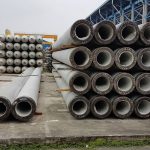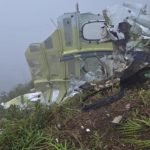Liga Asuransi – The repair shop business in Indonesia is growing as the number of private and commercial vehicles on the road increases, including the increasing use of electric and hybrid vehicles. Every day, hundreds of vehicles require maintenance, repairs, or replacement of spare parts to maintain their safety and optimal performance. This makes repair shops—from small garages to professional workshops—a promising business sector that remains in demand in the modern era.
However, despite the significant business opportunities, running a repair shop also faces increasingly complex risks. Modern vehicles are equipped with sophisticated technology such as electronic systems, sensors, and specialized batteries, making repairs more complex than conventional vehicles. Small errors in vehicle handling can lead to more extensive damage, while expensive or scarce spare parts increase the financial risk for garage owners.
The digitalization trend is also impacting workshop operations. Many garages now use workshop management software to track spare parts inventory, service schedules, and customer vehicle history. While these digital systems improve efficiency, they also introduce new risks, such as data entry errors or technical issues, which can disrupt service.
Furthermore, modern repair shops still face classic risks: employee accidents, vehicle damage during servicing, and even theft of spare parts. The high volume of mechanics, coupled with customer pressure for quick repairs, makes these risks even more real.
Understanding these risks is the first step for every garage owner to ensure business continuity, customer vehicle safety, and a well-maintained reputation. In this era, preparedness for risks is not only about physical security; efficiency, technology, and professional service are also key to success.
The Main Risks of a Workshop Business That Are Often Overlooked
- Damage or Loss of Customer Vehicle
In the modern era of vehicles, the risk of vehicle damage while in the repair shop is increasingly real. Electric and hybrid vehicles contain sensitive electronic components; even minor handling errors can cause serious damage. Furthermore, the risk of losing a vehicle or vehicle parts remains, for example, when the car is moved between service areas or while waiting for repairs.
Damage to or loss of a customer’s vehicle isn’t just a matter of repair costs, but also of reputation. Disappointed customers whose vehicles are damaged or lost can share negative experiences on social media, directly impacting the garage’s reputation. Garage Liability insurance coverage can help cover the financial losses resulting from this risk.
- Fire and Damage to Workshop Property
Modern garages remain vulnerable to fire and property damage, primarily due to the presence of flammable materials such as oil, gasoline, and certain spare parts. Welding activities, heavy equipment use, and the workshop’s busy electrical system also increase these risks.
Fire or damage to workshop facilities can disrupt operations, damage equipment, and incur significant replacement costs. Property All Risks insurance coverage can be a solution to minimize losses resulting from these incidents, including damage to electronic equipment and workshop facilities.
- Employee Injuries or Accidents
Workshop workers face physical risks every day, from slipping on wet floors to accidents while lifting machinery or using heavy equipment. Even in a modern garage, even a minor accident can result in missed work and costly medical care.
Furthermore, current mechanical trends demand high levels of skill in handling electronic vehicles, so even the slightest error could result in injury or damage to expensive equipment. Personal Accident insurance coverage for employees can help cover medical expenses and provide compensation in the event of a work-related accident.
- Responsibility to the Public
Workshops are not only responsible for the vehicles being repaired, but also for the safety of customers and visitors within the garage. For example, fallen vehicles, scattered spare parts, or spilled oil can cause injuries.
This public liability risk directly impacts reputation and customer trust. Public Liability insurance coverage can cover third-party claims resulting from injuries or property damage occurring in the workshop.
- Other Often Overlooked Risks
In addition to the main risks above, several other risks often escape the attention of workshop owners:
- Damage or theft of expensive spare parts, especially modern vehicle parts that are hard to find.
- Data input errors in garage software, which can disrupt spare part stock or repair schedules.
- Technology risks, such as broken electronic diagnostic tools or downed digital systems, impact customer service.
Understanding these risks helps workshop owners take preventative measures to ensure smooth operations, safe customer vehicles, and a secure garage reputation in the modern era. Some of the financial risks that arise from these incidents can also be minimized byspecific insurance coverageaccording to workshop needs.
Why These Risks Are Important to Cover
Understanding the risks inherent in a workshop is not just a matter of vigilance, but a strategic step to ensure the smooth running of the business. Every garage faces unique challenges, from sophisticated vehicles and expensive spare parts to ever-evolving digital technology. Here are some reasons why protecting against these risks is crucial:
- Protect Customer Vehicles and Workshop Reputation
A customer’s vehicle is a highly valuable asset. Damage or loss of a vehicle not only results in financial loss but can also damage customer trust. In the age of social media, a single bad experience can go viral, impacting a repair shop’s reputation.Garage Liabilityhelps cover the risk of damage or loss of the vehicle while it is in the workshop, so that the garage owner remains safe from large unexpected costs.
- Maintain Workshop Operations and Equipment
Property damage or a fire in a garage can shut down operations for days or weeks. This directly impacts the workshop’s productivity and revenue. Property All Risks covers damage to buildings, equipment, and workshop supplies due to fire, flood, or electrical failure, so that workshop operations can resume more quickly.
- Employee Safety is Key
Employees are a vital asset to any workshop. Workplace injuries or accidents not only affect employee health but also result in medical costs and reduced productivity. Personal Accident helps cover medical costs, compensation, and financial support in the event of a work accident, so that employees are protected and workshop operations remain stable.
- Anticipating Digital and Technology Risks
Modern garages increasingly rely on management software, electronic diagnostic tools, and other digital systems. Technical disruptions, such as equipment failure or software downtime, can disrupt service schedules, spare part inventory, and service quality. This risk can be minimized with a combination of preventive protection and appropriate insurance, including coverage for electronic equipment damage.
- Ensuring Business Continuity
Unmanaged risks can halt a workshop’s operations and erode customer confidence. Insurance coverage ensures financial risks are managed, helping the garage remain competitive and ensuring business continuity.
- Reducing the Financial Impact of Unexpected Risks
Modern workshops face unforeseen risks such as minor fires, oil spills, or expensive parts failures. Without protection, repair costs can be prohibitive. With the right insurance coverage, garage owners can cover unexpected costs and maintain financial stability.
- Increase Customer Confidence
A workshop that is prepared to face risks demonstrates professionalism and responsibility. Customers are more confident and comfortable leaving their vehicles with a workshop that clearly has safeguards in place against damage, loss, or accidents.
- Adapt to Modern Vehicle Trends
Modern vehicles such as electric, hybrid, and smart cars have sensitive and expensive components. The risk of repair errors or damage to electronic components increases. Insurance coverage covering modern risks helps repair shops adapt without having to bear the full cost themselves.
Tips for Choosing Protection for Your Workshop (Long Revision)
After understanding the risks facing modern garages, the next step is to develop an appropriate protection strategy. Insurance coverage helps workshop owners minimize losses, maintain operational continuity, and protect valuable assets such as customer vehicles, spare parts, and workshop equipment.
- Know Your Workshop’s Specific Risks
Each garage has different characteristics, depending on the type of service, the number of vehicles handled, and the types of spare parts used. Identifying the primary risks is crucial: whether the greatest risk comes from vehicle damage, lost spare parts, employee accidents, or technology outages.
In the modern vehicle era, risks also include damage to electronic components in hybrid or electric vehicles. By understanding the specific risks, workshop owners can choose the most appropriate type of insurance coverage, such as Garage Liability for vehicle damage or Property All Risks for workshop equipment and facilities.
- Prioritize the Most Valuable Assets
Customer vehicles, workshop equipment, and spare parts are valuable assets. Focusing on the most vital assets helps minimize significant losses.
For example, spare parts storage areas should be equipped with security systems, vehicles under repair should be monitored by CCTV or a clear check-in system, and expensive equipment such as diagnostic tools should be routinely checked and maintained. A combination of physical and insurance protection helps workshop owners ensure assets remain safe, while reducing the potential for unexpected costs.
- Consider Comprehensive Coverage
Modern garages face both physical and digital risks. A comprehensive protection strategy includes workshop safety procedures, employee safety training, digital data backup, and electronic equipment maintenance.
Additionally, workshop owners need to be aware of the risk of third-party liability. For example, if a visitor has an accident on the workshop premises or a third-party vehicle is damaged, the coverage of Public Liability becomes important. With a comprehensive approach, every aspect of workshop operations—from vehicles to employees—is optimally protected.
- Compare Available Options
There are many protection methods to choose from: physical security systems, standard operating procedures, and financial protection through various insurance policies. Garage owners need to weigh the advantages and disadvantages of each option.
For example:
- Garage Liability for the risk of damage or loss of the customer’s vehicle.
- Property All Risks for fire risks, property damage, and workshop equipment.
- Personal Accident for employees to cover medical costs and compensation.
- Public Liability to protect against third party claims.
In addition to risk coverage, evaluating the provider’s reputation, claims process, and policy flexibility is also crucial. A combination of preventive measures such as CCTV, spare part security, and safety training can strengthen insurance coverage, keeping financial risks under control.
- Update and Evaluate Regularly
Workshop risks aren’t static. Vehicles are becoming more sophisticated, spare parts are changing, and workshop technology is constantly evolving. Regular evaluations allow workshop owners to adjust their insurance coverage to reflect the latest developments.
Additionally, regular evaluations help review existing policies to determine whether coverage remains appropriate, whether new risks have been identified, or whether coverage needs to be adjusted. This approach ensures coverage remains relevant and effective, ensuring garage operations remain safe and efficient amidst the evolving modern automotive industry.
Conclusion
The modern repair shop business offers significant opportunities, but the risks are also increasingly complex. From damage to or loss of customer vehicles, garage fires, employee injuries, to technological risks and spare part theft, every aspect of the operation carries the potential for real loss.
Understanding these risks is not just a matter of caution, but a crucial strategy for keeping your garage running smoothly, protecting assets, and keeping customers satisfied. Garages that are prepared for risks can safeguard their reputation, increase customer trust, and ensure business sustainability amidst intense competition.
Workshop owners need to identify specific risks, prioritize the most valuable assets, and implement a comprehensive protection strategy. Regular evaluations are also crucial to ensure insurance coverage remains relevant to developments in modern vehicles, technology, and spare parts. With a keen awareness of risks and appropriate protective measures, every garage can minimize potential losses and ensure safe, efficient, and professional operations.
—
DON’T WASTE YOUR TIME AND SECURE YOUR MINING FINANCIAL AND BUSINESS WITH THE RIGHT INSURANCE.
HOTLINE L&G 24 JAM: 0811-8507-773 (CALL – WHATSAPP – SMS)
Website: lngrisk.co.id
Email: halo@lngrisk.co.id
—














